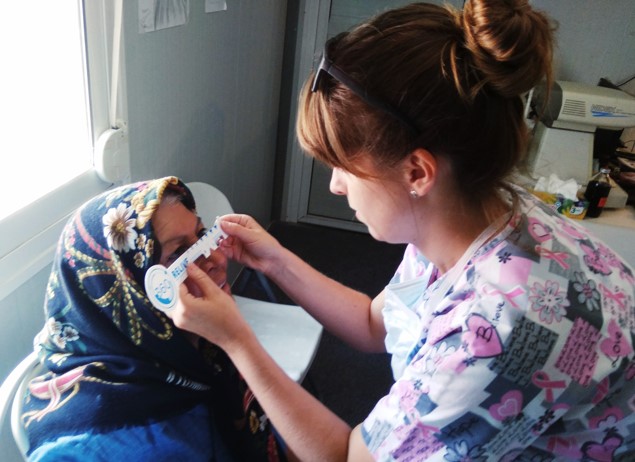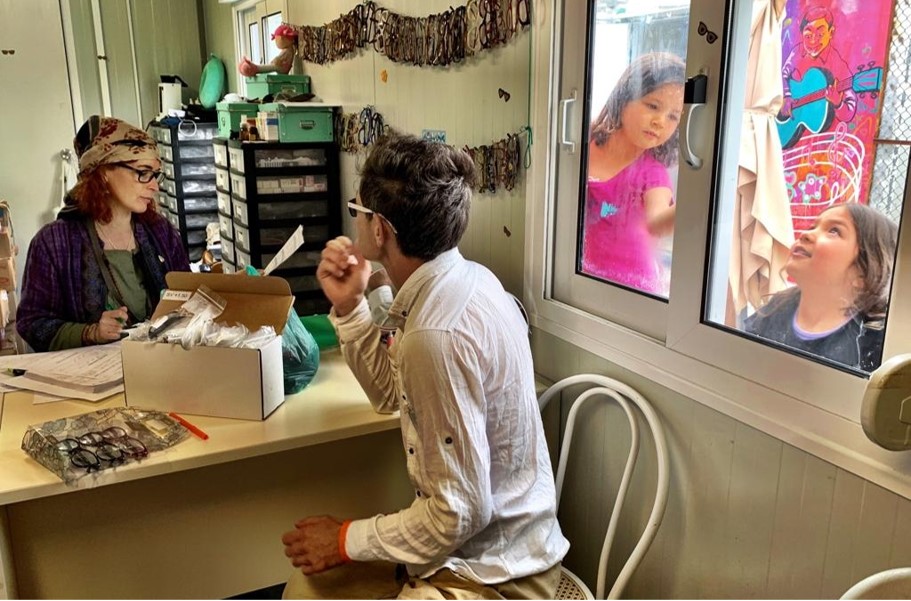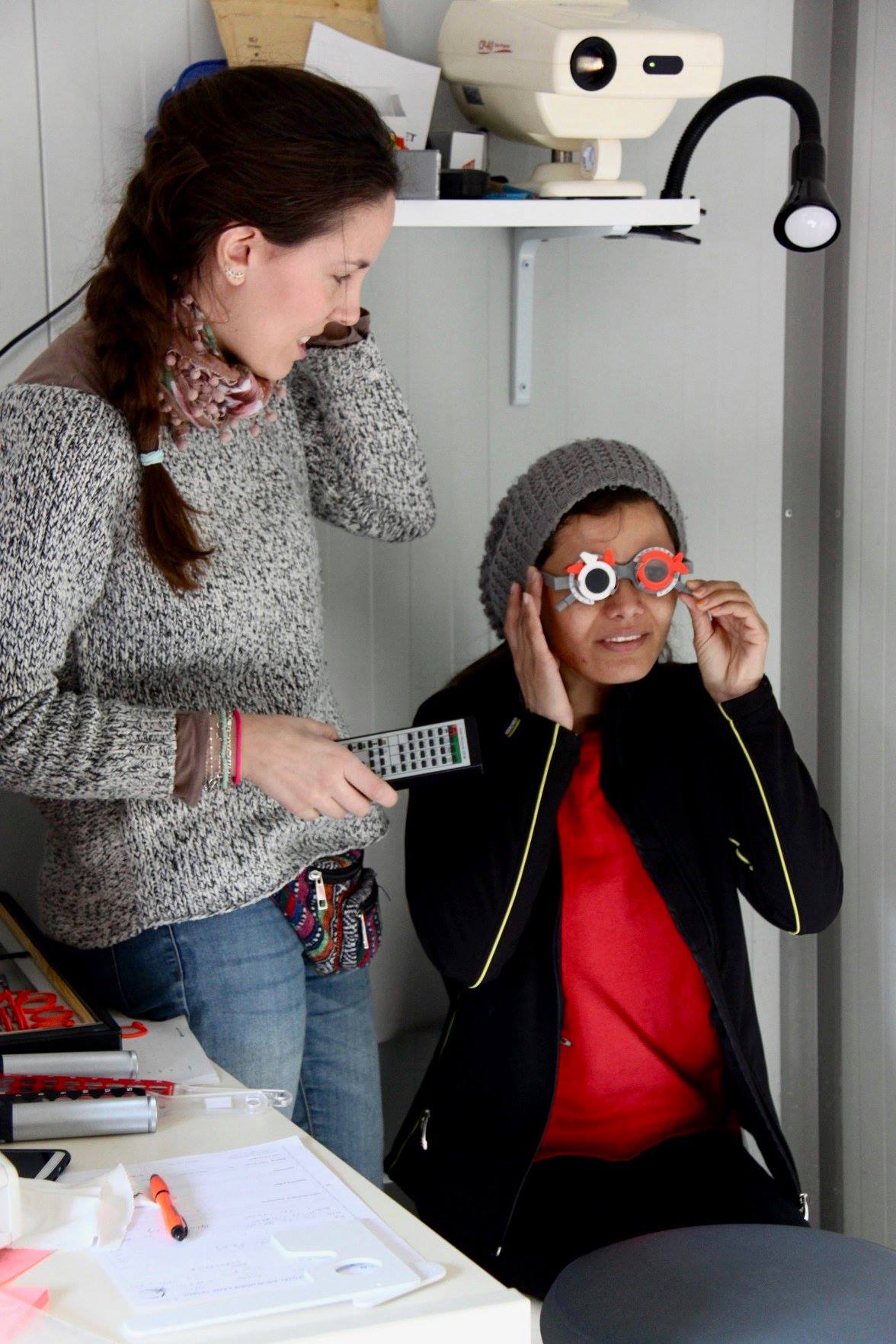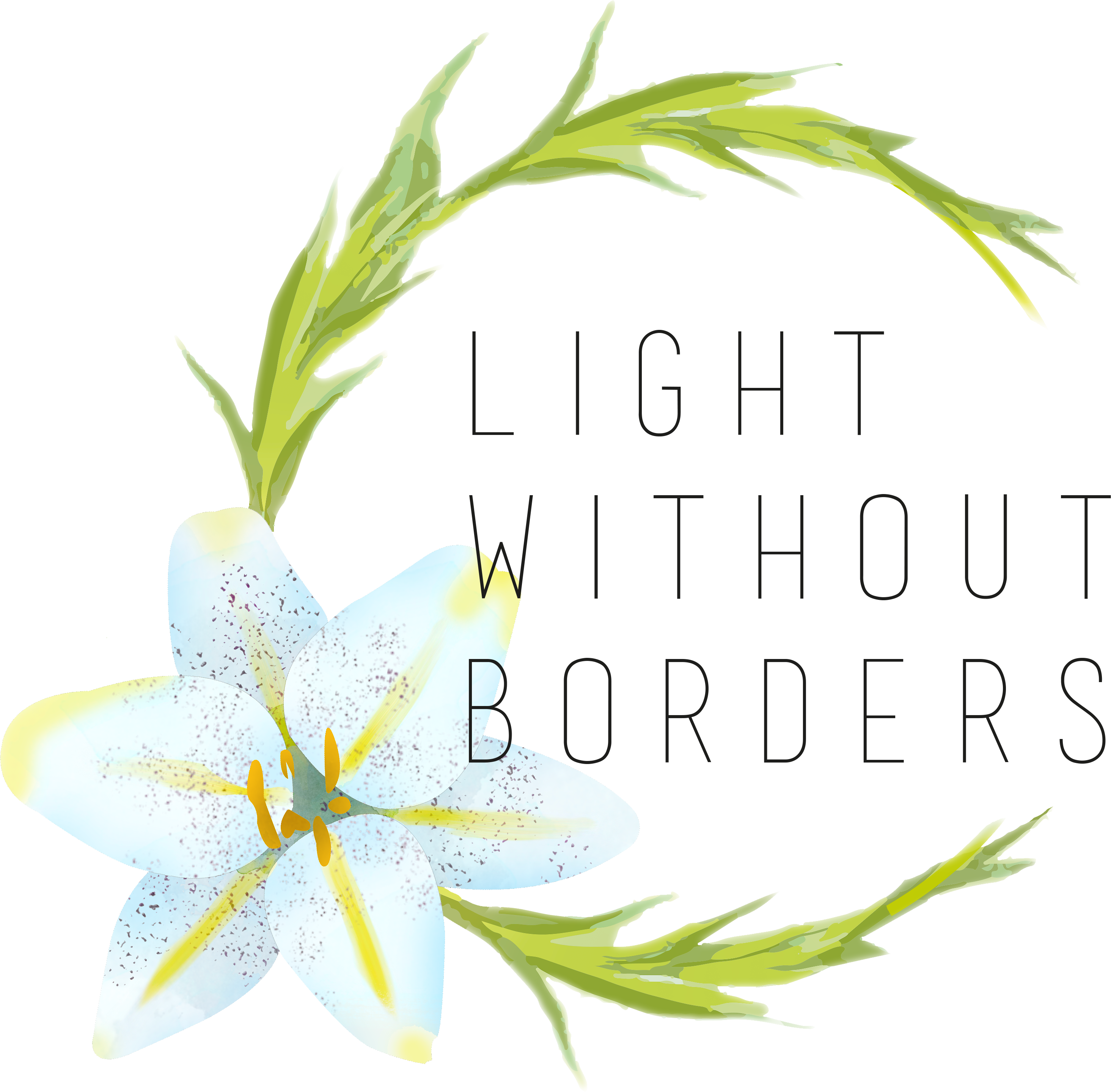Light Without Borders offer professional eye examinations free of charge and we dispense prescription glasses.
Our equipment is basic, but sufficient for general optometry and prescribing glasses. With further donations and funding we will upgrade and obtain further equipment.

In 2014, boats began arriving on the beaches of Lesvos, Greece, filled with refugees fleeing conflict and persecution. Many refugees had spent weeks or months on the journey and arrived with only what they could carry. Many had lost their glasses or arrived with eye injuries or conditions.
The local health services can only provide refugees with limited optometry and ophthalmic services. Refugees typically wait six months for an eye test at the local hospital and will have to pay for glasses made by an optician. Local health services are unable to provide refugees with treatment for more complex eye conditions or diseases.
No other NGO or organisation provides optometric or ophthalmic services for refugees in Lesvos.
Making people happy –
sometimes you only need
a pair of glasses
We have a permanent clinic in an ISObox within Moria camp, Lesvos.
The clinic is staffed by visiting volunteer optometrists and ophthalmologists.


Our mission is to provide professional eye care and comfort to people who have suffered conflict, poverty, or forced to flee their homes.
The “Light to Your Eyes” project offers refugees in Lesvos free consultations with an optometrist who gives them a full eye examination. Patients with more complex conditions are subsequently referred to an ophthalmologist. If needed, patients are supplied with correctly graduated prescription glasses.
The “Light to Your Eyes” project, which is operated by Light Without Borders, is staffed exclusively by volunteers with the support of a local Greek ophthalmologist and the Starfish Foundation which provides transport to refugees.
Our main clinic is in an ISObox within Moria camp, and we also occasionally run day clinics in Kara Tepe, a camp primarily for refugee families. The optometry equipment is basic, but it is sufficient for an optometrist to do eye tests to prescribe glasses.




Volunteers from the local refugee community help in the clinic as translators and assistants
The clinic relies on a small team of refugees to translate and mediate during clinical sessions. They work along-side the clinicians and are valued members of the staff and are given an opportunity to feel that their contribution is important.
Volunteer refugees are given training in the practices of the clinic and will assist the optometrist in eye examinations. They also help record patient data and eye test results in a database, and match each patient’s prescription with our stock of glasses.

Light Without Borders provides correctly specified glasses to patients free of charge. These are from our stock of donated glasses or especially made.
We have nearly 3000 pairs of used and nearly new prescription glasses, all of which have been donated by individuals and organisations. In many cases we are able to match a patient’s prescription from our stock glasses.
However, recently two organisations, JustSpecs (in the UK) and the Etnia Barcelona Foundation (in Spain), have offered to provide correctly prescribed glasses for our patients free of charge. We are very grateful to both organisations. It means we can always prescribe exactly matching glasses for our patients. In future we will mainly use this method of supplying glasses because it provides a far better service to our patients.






Light Without Borders has already changed the lives of hundreds of people. Since it opened in February 2018, the clinic has seen nearly 1600 patients and has provided glasses to approximately 1000 people, and has referred many for further examination by an ophthalmologist.
We would like to develop further partnerships with ophthalmic organisations and clinicians, to provide more complex ophthalmic services including surgery and specialist eye care for refugees who are unable to travel to mainland Europe.

Our mission is to provide professional eye care and comfort to people who have suffered conflict, poverty, or forced to flee their homes.
